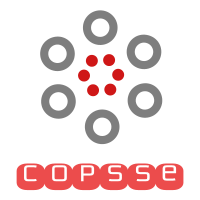Clearly enlisting ovarian cyst symptoms is a difficult proposition. The main reason behind this difficulty is that ovarian cysts can display very few to no symptoms. Ovarian cysts are often discovered accidentally during a Routine Physical Exam or can be chanced upon during ultrasound, which might be performed for various reasons. Let’s take a closer look at some of these symptoms:
Prominent symptoms
Some of the most prominent ovarian cyst symptoms include sudden or recurring pain in the lower pelvis or abdominal region of varying severity, irregularity in periods, a feeling of fullness in the lower abdomen, persistent pain around the pelvic girdle during periods which might be experienced in the lower back region too, pelvic pain felt after sexual intercourse or strenuous exercise, difficulty or abnormal pain experienced with bowel movements or during urination, a feeling of nausea and vomiting, vaginal blood spots or pain in the vagina, tenderness and pain in the breasts and abnormal weight gain.
The above mentioned ovarian cyst syndromes are generic in nature. These symptoms might also result from endometriosis, pelvic inflammatory disease or ectopic pregnancy. This necessitates a proper treatment and an accurate diagnosis.
Serious cases
Advanced cases of ovarian cysts can pose a greater threat to health with symptoms like light-headedness or dizziness, fatigue, harsh abdominal pain, fever, rapid breathing and/or shortness of breath and so on. Should any of these problems be encountered, it is advisable to consult the doctor without delay. Over the last few decades, medical sciences have advanced tremendously, and be assured that there are excellent treatment options and medication available to cure even the most severe cases of ovarian cysts.
Today, there is no dearth of treatments for ovarian cysts. Countless women around the globe still rely on home-based self-care measures and are getting excellent results. These measures include the use of non-steroidal anti-inflammatory drugs like Motrin (ibuprofen), Tylenol (acetaminophen), or other medicines that are used to combat narcotic pain. Putting a check on strenuous activities also help in the reduction of possible torsion or a rupture of the cysts. The cysts are often monitored by using modern endovaginal ultrasound or ultrasonic techniques. However, few such measures can really beat the effectiveness of adopting a holistic approach towards treating ovarian cysts.
Complications
An ovarian cyst that has grown large can bring about a great degree of abdominal discomfort. A large cyst often tends to press against the bladder causing you to urinate more frequently (due to the reduced capacity of the bladder). There can be cases involving less common kinds of cysts that show virtually no symptoms in women. Your doctor usually discovers them by chance during a regular pelvic examination. Beware of large masses of ovarian cysts that tend to develop after a woman reaches menopause. They could turn out to be cancerous. These factors stress the importance of getting a pelvic examination on a regular basis.
A word of caution
Symptoms alone cannot ascertain the presence of ovarian cysts in women. In some cases, symptoms may be completely absent. There is also a possibility of ovarian cysts showing symptoms that are usually associated with other diseases, such as pelvic disease of inflammation, endometriosis, ovarian cancer, or ectopic pregnancy. Ruptured ovarian cysts can produce symptoms that are akin to those produced by diverticulitis and appendicitis. It is always advisable to look into and medically investigate any symptom without delay. If the symptoms mentioned in the first two paragraphs are present, there is a very high chance of presence of ovarian cysts. Consult your doctor immediately without delay if you experience pain followed by vomiting or fever, and any severe or sudden pain in the abdomen or pelvic region.
Holistic approach
Holistic approach is the new buzzword in the medical world today and it is fast gaining popularity everywhere. Adopting this approach is beneficial in cases involving ovarian cysts too. As a ‘Health Concept’, holism has a very long history. It is only recently that there has been a conscious effort to merge this alternative mode of treatment into the medical mainstream. Holistic approach not only cures ovarian cysts completely, but also provides a deep sense of peace, both at the physical level as well as the mental level. Holistic approach is not so much a way of treatment as it is an approach towards the explanation of application of treatment. Adopting a holistic approach in the early state of ovarian cysts can really work miracles.
The essence of holistic approach lies in the belief of ‘A Healthy Mind in a Healthy body’. The approach is potentially very powerful and it not only prevents ovarian cysts in the first place, but also cures them. One of the primary features of the approach is its focus on diet. A wholesome balanced diet is the key to a healthy body as well as a strong resistance to the onslaught of various diseases. The balanced diet advocated by holistic approach includes plenty of leafy and green vegetables, fruits, proteins and minerals. Substances rich in fat and excessive intake of carbohydrates are best avoided. Proper cleanliness of the body and its surrounding are to be strictly maintained. With these simple measures, you can bid farewell to all ovarian cyst symptoms forever.
Article Source: http://EzineArticles.com/1344175

